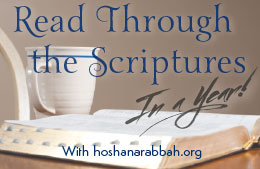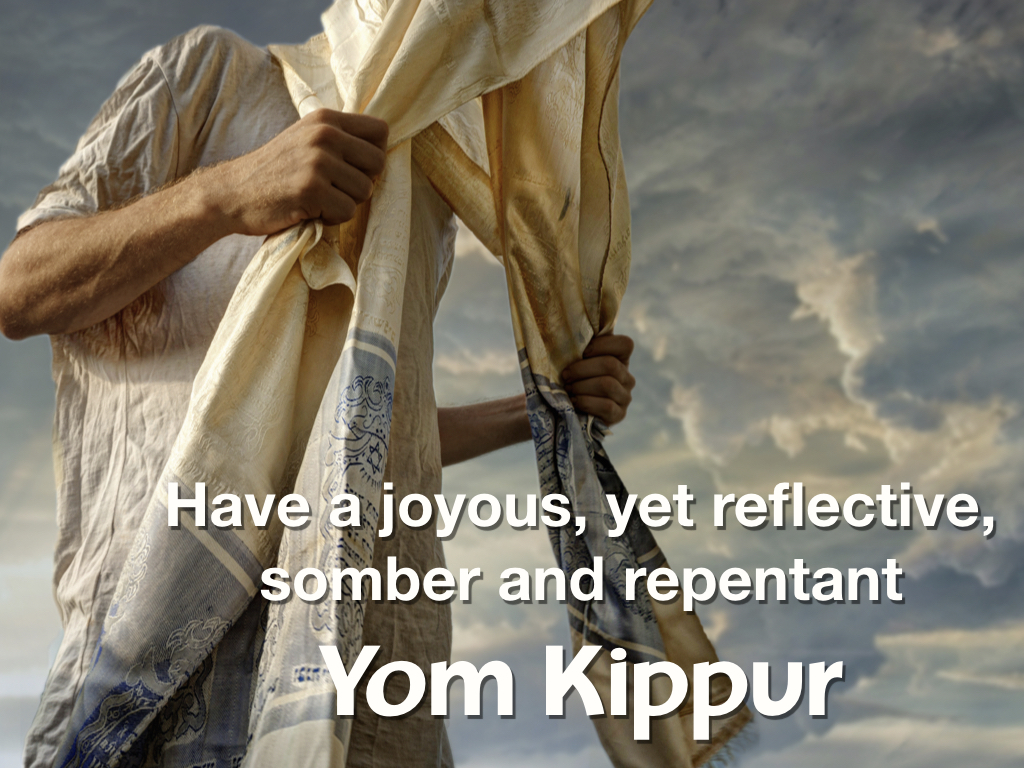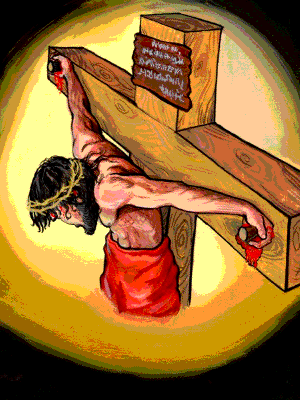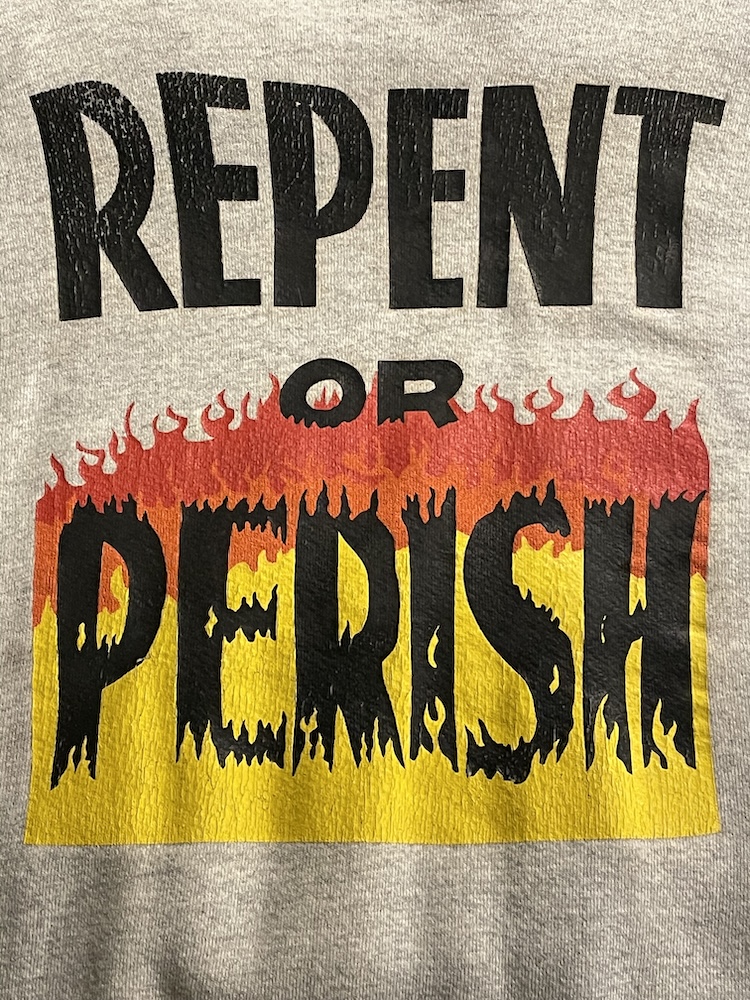
There is no salvation without true repentance!
What would you hear if you were to ask the average Christian to summarize the basic gospel message in one sentence? You might hear something like “Jesus loves you and has wonderful plan for your life.” Or you might hear, “Jesus died for your sins, so that you might go to heaven.” Some of the more “modern and progressive” or so-called “seeker friendly” Christians might say, “Come to Jesus and he’ll improve your self-esteem,” or “If you want good health and lots of wealth, come to Jesus.” But how does the Bible summarize the gospel message? That’s a question that almost nobody asks and no one knows or preaches about, even though the answer should be obvious to anyone who has read the Gospels. The truth is shocking and radically different from what most modern Christians think!
Matthew in his Gospel after describing the circumstances around the birth of Yeshua the Messiah, opens up by introducing the ministry of John the Baptist, the anointed prophet from heaven who came to prepare the way for the Messiah. The Gospel writers summarizes the preaching of John as “Repent, for the kingdom of heaven is at hand” (Matt 3:2). In the next chapter after his brief introduction to John’s ministry, Matthew then brings Yeshua the Messiah onto the scene. After Yeshua’s temptation in the wilderness, Matthew records, “From that time Yeshua began to preach and to say, ‘Repent, for the kingdom of heaven is at hand’” (Matt 4:17). Mark in his gospel records the same event as follows: “Now after John was put in prison, Yeshua came to Galilee, preaching the gospel of the kingdom of Elohim, and saying, ‘The time is fulfilled, and the kingdom of Elohim is at hand. Repent, and believe in the gospel’” (Mark 1:14–15). Finally, on the day of Pentecost after being pricked in their hearts by Peter’s convicting sermon, the crowd asked the apostle what they should do next. His answer was, “Repent, and let every one of you be baptized in the name of Yeshua the Messiah for the remission of sins; and you shall receive the gift of the Holy Spirit” (Acts 2:38). A central and recurring theme in all of these passages is the idea of repentance from sin—a biblical concept that is understood by few modern Christians, and a message that is seldom preached in modern pulpits anymore. All of this is in spite of the fact that the writer of the Epistle to the Hebrews refers to “repentance from dead works” as “one of the [six] elementary principles of Messiah [or the gospel message]” (Heb 6:1–3).
So what is repentance? How does Scripture define repentance? It is a Hebraic concept, so we must go back to the Hebrew Scriptures to discover the answer.
Hebrew Word Definitions
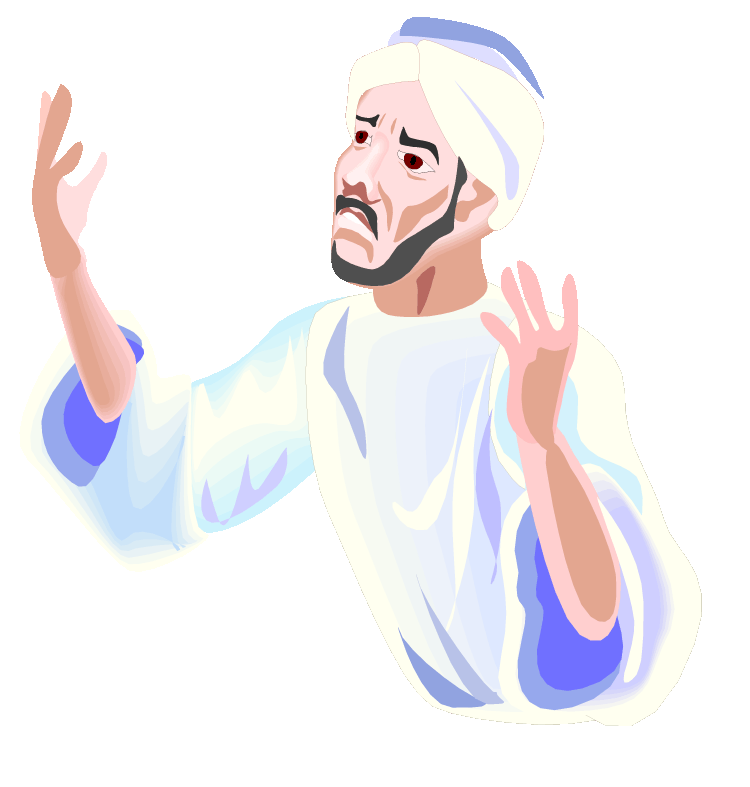
There are two biblical Hebrew words that together present the complete picture of what true biblical-based repentance is. The first word is nacham meaning “to be sorry, console oneself, repent, regret, comfort, be comforted.” According to The Theological Dictionary of the Old Testament (The TWOT), the origin of the root of this word seems to reflect the idea of “breathing deeply,” hence the physical display of one’s feelings, usually sorrow, compassion, or comfort. The root occurs in the Ugaritic…and is found in Old Testament (OT or Tanakh) proper names such as Nehemiah, Nahum and Menehem. The Greek Septuagint (or lxx) translates the Hebrew word nacham by the two Greek words metanoeo and metamelomai. The Greek word metanoeo means “to change one’s mind, that is, to repent or to change one’s mind for better, heartily to amend with abhorrence of one’s past sins.” Wilson’s Old Testament Word Studies says this of nacham:
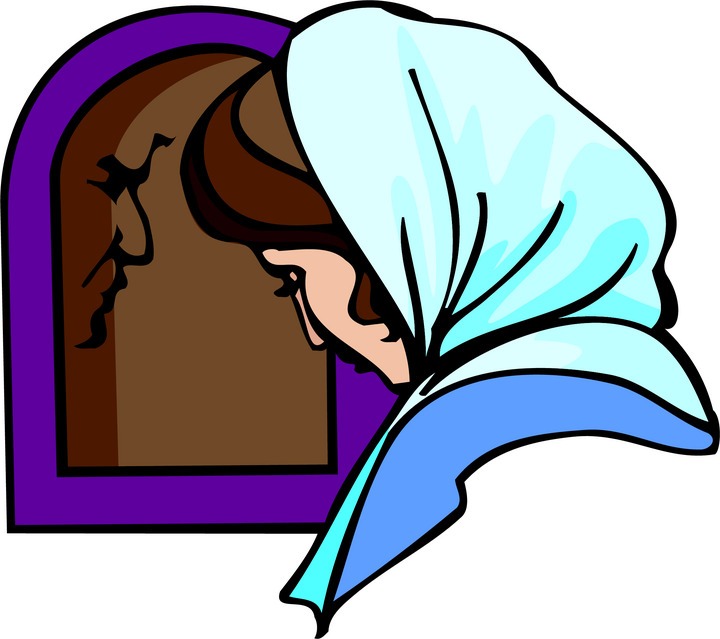
In regard to others, to pity, to have compassion…in regard to one’s own doing, to lament, to grieve; hence to repent; in English, to rue; often of one who repents, grieves, for the evil he has brought upon another.” The New Strong’s Expanded Exhaustive Concordance says of nacham: to breathe strongly, by implication, to be sorry…to repent means to make a strong turning to a new course of action. The emphasis is on turning from a less desirable course. Comfort is derived from ‘com’ (with) and ‘fort’ (strength). Hence, when one repents, he exerts strength to change, to re-grasp the situation, and exert effort for the situation to make a different course of purpose and action. The stress is not upon new information or new facts which cause the change as it is upon the visible action taken.

The second Hebrew word is shuv (from which the Hebrew word teshuvah derives, which means “repentance”) meaning “to return, turn back, refresh, repair, restore.” The TWOT in its discussion of the Hebrew verb shuv states,
The Bible is rich in idioms describing man’s responsibility in the process of repentance. Such phrases would include the following: “incline your heart unto [YHVH your Elohim]” (Josh 24:23); “circumcise yourselves to YHVH” (Jer 4:4); “wash your heart from wickedness” (Jer 4:14); “break up your fallow ground” (Hos 10:12); and so forth. All of these expressions of man’s penitential activity, however, are subsumed and summarized by this one verb shub. Far better than any other verb it combines in itself the two requisites of repentance: to turn from evil and to turn to the good.
In order to repent according to biblical criteria, one must understand that Scripture defines sins in the most basic terms as the violation of YHVH’s Torah, or instructions or teachings in righteousness (1 John 3:4). This basic concept can be expressed in several other ways as well. For example, all unrighteousness is sin (1 John 5:17). To fail to do what is right is also sin (Jas 4:17). It is also sin not to believe in Yeshua the Messiah (John 16:9).
The main Hebrew word for sin is chet, which in its loosest sense means “a failure in our relationship with Elohim.” Our goal should be to continually move closer to Elohim, but chet is any behavior (i.e. word, thought or deed or the failure to do what is right) that causes us to move away from Elohim.
If YHVH requires his people to repent of or to turn away from sin and then turn to righteousness, which is obedience to his commandments (Ps 119:172), then we must know what is involved in repentance. Repentance as expressed in the Hebrew word teshuvah, which comes from the Hebrew word shuv meaning “to return.” In the biblical context, it means “to return to Elohim” by returning to the righteous behavior that he requires of his people. In other words, repentance means a return to obeying his word or his commandments, which is the opposite of sin. While we must deeply regret our movement away from Elohim (i.e., nacham), we must not despair, for YHVH has provided the way for us to return to him, and he promises us that when we repent, he will forgive us without delay (Ps 103:3, 8–12; 1 John 1:9)
According to Scripture, there are, several basic steps to repentance. They are:
Recognize our sin. We must first recognize that we have a problem—that we are sinful to the core (Jer 17:9; Rom 8:7; Rom 3:10–18, 23; Isa 64:6). For this to happen, we have to come to grips with the fact that we have broken Elohim’s laws, which define sin (1 John 3:4; Jas 2:10; Rom 3:23). Human pride makes this step the hardest one to take (1 John 1:8).
Confess our sin. We must next confess our sin before YHVH (Lev 5:5; Num 5:7; Ps 32:5; 1 John 1:9).
Be sorry for our sins. We must manifest heartfelt regret for our wrong actions by evidencing remorse and contrition before YHVH and our fellow man, if applicable. The Hebrew word for this is nacham and according to The TWOT and as already noted above means, “to reflect the idea of ‘breathing deeply,’ hence the physical display of one’s feelings, usually sorrow, compassion, or comfort.” We see David expressing nacham in his thirty-eighth psalm.
For my iniquities have gone over my head; Like a heavy burden they are too heavy for me. My wounds are foul and festering because of my foolishness. I am troubled, I am bowed down greatly; I go mourning all the day long. For my loins are full of inflammation, and there is no soundness in my flesh. I am feeble and severely broken; I groan because of the turmoil of my heart.… For I will declare my iniquity; I will be in anguish over my sin. (Ps 38:4–8, 18)
Turn from our sins. After this, we must turn from our sins and resolve to stop sinning. This is expressed in the Hebrew word teshuvah meaning “to repent,” which is from the root word shub or shuv. The TWOT defines shuv as follows:
The Bible is rich in idioms describing man’s responsibility in the process of repentance. Such phrases include the following: “incline your heart unto [YHVH your Elohim]” (Josh 24:23); “circumcise yourselves to YHVH” (Jer 4:4); “wash your heart from wickedness” (Jer 4:14); “break up your fallow ground” (Hos 10:12); and so forth. All of these expressions of man’s penitential activity, however, are subsumed and summarized by this one verb shub. Far better than any other verb it combines in itself the two requisites of repentance: to turn from evil and to turn to the good.
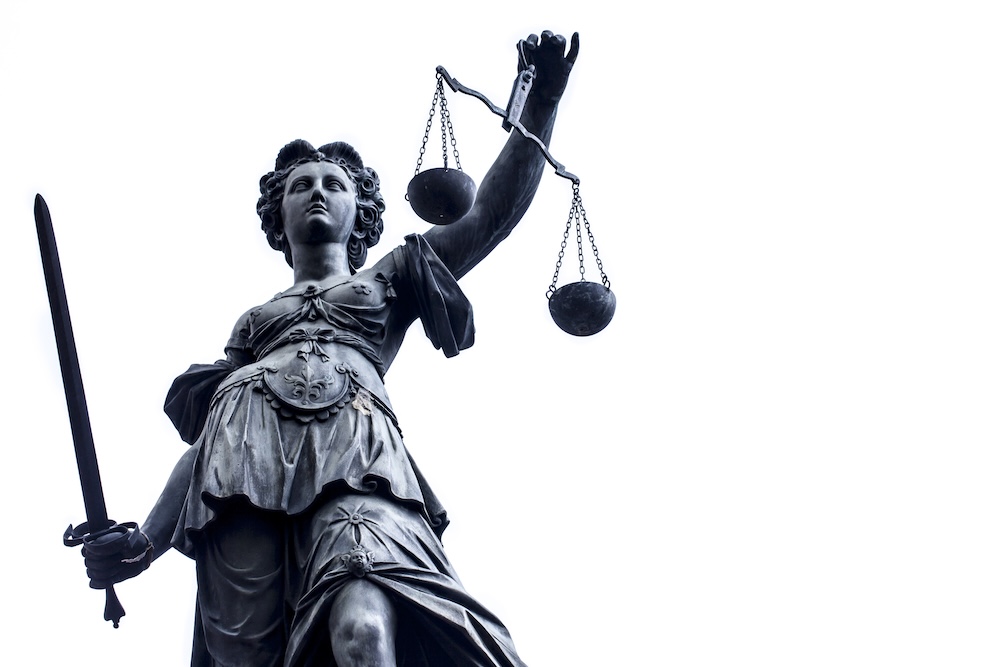
The penalty price must be paid for our sins. Whenever a law is broken, a penalty must be paid. This is true with men’s civil laws as well as Elohim’s moral and spiritual laws. When a person breaks Elohim’s spiritual laws he comes under the penalty of the law and a penalty price has to be paid. That price is death (Ezek 18:4; Rom 6:23). There is only one way to circumvent the death penalty for breaking Elohim’s laws, that is to make an offering of the legally prescribed sacrifice to pay for the sin (Lev 5:1–20). Yeshua, the Messiah of Israel, became that sacrifice for our sin once and for all when he died on the cross (Isa 53:5; Heb 4:14–5:10; 7:14–8:6; 9:11–10:22). By accepting his paying the death penalty for our sins, his righteous, sin-free life can be credited to our spiritual account in the courts of heaven. This occurs when we believe in him and come into a spiritual relationship with him (John 3:16–18; 5:24–29; 6:40, 47; Rom 6:3–11; 10:9–13).
Make restitution. When we have sinned against our fellow man, not only is confession and forsaking that sin required, but we must make restitution in full of whatever has been wrongfully obtained or withheld something from our fellow man (Lev 5:14–19; Matt 5:23–25).
Believe and receive. We must then accept our Heavenly Father’s unconditional mercy and grace (Ps 103:3–4, 10–17).
After the reset, begin the new walk of righteousness. Once biblical repentance has occurred, it is time to begin a new sin-free life of walking in righteous obedience to YHVH Elohim (Deut 10:12–13; John 14:15, 21–24; 15:10–14; 1 John 2:3–5; 5:2–3).
Scriptures on Repentance
Wherefore I abhor myself, and repent [nacham] in dust and ashes. (Job 42:6)
Therefore say unto the house of Israel, Thus saith YHVH Elohim; repent [shuv] , and turn yourselves from your idols; and turn away your faces from all your abominations. (Ezek 14:6)
Therefore I will judge you, O house of Israel, every one according to his ways, saith YHVH Elohim. repent [shuv] and turn yourselves from all your transgressions; so iniquity shall not be your ruin. (Ezek 18:30)
Repentance is a foundation doctrinal truth of our faith
Therefore leaving the principles of the doctrine of Messiah, let us go on unto perfection; not laying again the foundation of repentance from dead works, and of faith toward Elohim. (Heb 6:1)
The preaching of repentance is a fundamental aspect of the gospel message
From that time Yeshua began to preach, and to say, Repent: for the kingdom of heaven is at hand. (Matt 4:17)
But go ye and learn what that meaneth, I will have mercy, and not sacrifice: for I am not come to call the righteous, but sinners to repentance. (Matt 9:13)
And saying, The time is fulfilled, and the kingdom of Elohim is at hand: repent ye, and believe the gospel. (Mark 1:15)
When Yeshua heard it, he saith unto them, They that are whole have no need of the physician, but they that are sick: I came not to call the righteous, but sinners to repentance. (Mark 2:17)
And they went out, and preached that men should repent. (Mark 6:12)
And he came into all the country about Jordan, preaching the baptism of repentance for the remission of sins. (Luke 3:3)
I came not to call the righteous, but sinners to repentance. (Luke 5:32)
And that repentance and remission of sins should be preached in his name among all nations, beginning at Jerusalem. (Luke 24:47)
Repentance of sin and faith toward Yeshua go hand-in-hand
And that repentance and remission of sins should be preached in his name among all nations, beginning at Jerusalem. (Luke 24:47)
Then Peter said unto them, Repent, and be baptized every one of you in the name of Yeshua Messiah for the remission of sins, and ye shall receive the gift of the Holy Spirit. (Acts 2:38)
Testifying both to the Jews, and also to the Greeks, repentance toward Elohim, and faith toward our Lord Yeshua Messiah. (Acts 20:21)
There is no salvation without repentance
I tell you, Nay: but, except ye repent, ye shall all likewise perish.… I tell you, Nay: but, except ye repent, ye shall all likewise perish.…I say unto you, that likewise joy shall be in heaven over one sinner that repenteth, more than over ninety and nine just persons, which need no repentance. (Luke 13:3, 5, 7)
Elohim commands (and desires) all men to repent (of sin)
And the times of this ignorance Elohim winked at; but now commandeth all men every where to repent. (Acts 17:30)
YHVH is not slack concerning his promise, as some men count slackness; but is longsuffering to us-ward, not willing that any should perish, but that all should come to repentance. (2 Pet 3:9)
Repentance brings relief (from sin, guilt, fear of death)
Repent ye therefore, and be converted, that your sins may be blotted out, when the times of refreshing [or cooling] shall come from the presence of YHVH. (Acts 3:19)
Repentance leads to eternal life
When they heard these things, they held their peace, and glorified Elohim, saying, Then hath Elohim also to the Gentiles granted repentance unto life. (Acts 11:18)
Repenting and accepting repentance is an on-going aspect of the believer’s walk
Take heed to yourselves: If thy brother trespass against thee, rebuke him; and if he repent, forgive him. (Luke 17:3)
And if he trespass against thee seven times in a day, and seven times in a day turn again to thee, saying, I repent; thou shalt forgive him. (Luke 17:4)
Repentance is more than words…it must be backed up with action
Bring forth therefore fruits meet for repentance. (Matt 3:8)
Bring forth therefore fruits worthy of repentance, and begin not to say within yourselves, We have Abraham to our father: for I say unto you, That Elohim is able of these stones to raise up children unto Abraham. (Luke 3:8)
But shewed first unto them of Damascus, and at Jerusalem, and throughout all the coasts of Judaea, and then to the Gentiles, that they should repent and turn to Elohim, and do works meet [corresponding to, congruous with, worthy of, befitting] for repentance. (Acts 26:20)
Elohim prepares the way for repentance in a person’s heart
Or despisest thou the riches of his goodness and forbearance and longsuffering; not knowing that the goodness [virtue] of Elohim leadeth thee to repentance? (Rom 2:4)
Elohim can give the gift of repentance
Him hath Elohim exalted with his right hand to be a Prince and a Saviour, for to give repentance to Israel, and forgiveness of sins. (Acts 5:31)
In meekness instructing those that oppose themselves; if Elohim peradventure will give them repentance to the acknowledging of the truth. (2 Tim 2:25)
Repentance is a first step one takes toward Elohim in the conversion process
Repent ye therefore, and be converted, that your sins may be blotted out, when the times of refreshing [or cooling] shall come from the presence of YHVH. (Acts 3:19)
For though I made you sorry with a letter, I do not repent, though I did repent: for I perceive that the same epistle hath made you sorry, though it were but for a season. Now I rejoice, not that ye were made sorry, but that ye sorrowed to repentance: for ye were made sorry after a godly manner, that ye might receive damage by us in nothing. For godly sorrow worketh repentance to salvation not to be repented of: but the sorrow of the world worketh death. (2 Cor 7:8–10)
Repentance is necessary in preparation for Yeshua’s coming
And saying, Repent ye: for the kingdom of heaven is at hand. (Matt 3:2)
I indeed baptize you with water unto repentance: but he that cometh after me is mightier than I, whose shoes I am not worthy to bear: he shall baptize you with the Holy Spirit, and with fire. (Matt 3:11)
John did baptize in the wilderness, and preach the baptism of repentance for the remission of sins. (Mark 1:4)
Then said Paul, John verily baptized with the baptism of repentance, saying unto the people, that they should believe on him which should come after him, that is, on Messiah Yeshua. (Acts 19:4)
When John had first preached before his coming the baptism of repentance to all the people of Israel. (Acts 13:24)
Remember therefore from whence thou art fallen, and repent, and do the first works; or else I will come unto thee quickly, and will remove thy candlestick out of his place, except thou repent. (Rev 2:5)
Repent; or else I will come unto thee quickly, and will fight against them with the sword of my mouth. (Rev 2:16)
Behold, I will cast her into a bed, and them that commit adultery with her into great tribulation, except they repent of their deeds. (Rev 2:22)
Remember therefore how thou hast received and heard, and hold fast, and repent. If therefore thou shalt not watch, I will come on thee as a thief, and thou shalt not know what hour I will come upon thee. (Rev 3:3)
As many as I love, I rebuke and chasten: be zealous therefore, and repent. (Rev 3:19)


